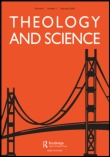
Theology and Science
Scope & Guideline
Navigating the Terrain Where Theology Meets Empirical Research
Introduction
Aims and Scopes
- Science-Religion Interaction:
A core focus of the journal is the exploration of how science and religion interact, including frameworks for understanding their relationship and the implications for both disciplines. - Ethics and Technology:
The journal emphasizes the ethical implications of emerging technologies, particularly in contexts such as artificial intelligence, biotechnology, and environmental stewardship, considering how theological perspectives can inform ethical debates. - Ecotheology and Environmental Concerns:
A significant area of research is ecotheology, which examines the theological dimensions of environmental issues, advocating for stewardship of creation in light of scientific understanding of ecological crises. - Astrobiology and Cosmology:
The journal engages with astrobiology and cosmological questions, exploring the theological implications of extraterrestrial life and the universe's origins, thus contributing to discussions on creation and divine action. - Interdisciplinary Dialogue:
Promoting interdisciplinary dialogue is a primary aim, encouraging contributions from various fields including philosophy, ethics, and the cognitive sciences, as they relate to theological questions.
Trending and Emerging
- Artificial Intelligence and Theology:
There is a growing body of work exploring the implications of artificial intelligence for theology, including discussions on ethical considerations, the nature of consciousness, and the potential for AI to engage with religious concepts. - Environmental Ethics and Climate Change:
Research focusing on environmental ethics, particularly in relation to climate change, has surged, highlighting the role of theology in addressing ecological issues and promoting sustainable practices. - Astrobiology and Extraterrestrial Life:
Interest in astrobiology, especially concerning the theological implications of extraterrestrial life, is on the rise, as scholars explore how these discoveries might affect religious beliefs and doctrines. - Bioethics and Human Enhancement:
Emerging discussions on bioethics, particularly regarding human enhancement technologies, reflect a trend towards examining how theological perspectives can inform ethical debates in biomedical contexts. - Interfaith Dialogue on Science and Religion:
There is an increasing emphasis on interfaith dialogues that include diverse religious perspectives on scientific issues, fostering a collaborative approach to common challenges faced by humanity.
Declining or Waning
- Traditional Creationism:
Discussion around traditional creationist views appears to be less frequent, as the journal shifts towards more nuanced understandings of evolution and science-religion dialogue. - Historical Theology without Contemporary Relevance:
Papers focused solely on historical theological debates, without connecting them to contemporary scientific issues or modern theological challenges, are becoming less common. - Exclusively Theological Perspectives:
There is a noticeable reduction in articles that approach topics exclusively from a theological perspective, as the journal increasingly favors interdisciplinary approaches that incorporate scientific insights. - Disengagement from Political Theology:
Themes centered on political theology seem to be waning, possibly as the journal pivots towards more universal scientific and ethical concerns rather than politically charged theological discussions. - Narrowly Defined Religious Experiences:
Research that focuses exclusively on specific religious experiences without broader implications for science or ethics is becoming less prominent, reflecting a shift towards more integrative approaches.
Similar Journals
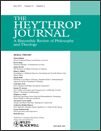
HEYTHROP JOURNAL
Bridging Diverse Fields for a Deeper UnderstandingHeythrop Journal, published by Wiley, is a distinguished academic periodical that serves as a critical forum for interdisciplinary dialogue spanning multiple fields including philosophy, religious studies, and the sciences. With an impact factor that reflects its growing influence, the journal has successfully engaged scholars since its inception in 1960. The journal is categorized under several quartiles in 2023, notably achieving Q3 rankings in Philosophy and Religious Studies, emphasizing its role in advancing scholarly discourse. The scope of the Heythrop Journal encompasses thoughtful analysis, theological reflection, and interdisciplinary research, appealing not only to researchers and professionals but also to students eager to explore the complex intersections of faith, reason, and contemporary issues. While the journal currently does not offer open access, it continues to maintain a reputation for rigor and relevance within its diverse fields of inquiry. Whether you’re in the realm of neurology or examining waste management sciences, the Heythrop Journal remains a pivotal resource, fostering an enriching environment for intellectual exchange and exploration.

Bogoslovska Smotra-Ephemerides Theologicae Zagrabienses
Illuminating Faith Through Academic DiscourseBogoslovska Smotra-Ephemerides Theologicae Zagrabienses is a prominent journal in the field of Religious Studies, published by the esteemed University of Zagreb's Catholic Faculty of Theology. Since achieving Open Access status in 2008, this journal has become an essential resource for scholars, researchers, and students alike, facilitating the dissemination of theological scholarship and discourse. With an ISSN of 0352-3101 and an E-ISSN of 1848-9648, the journal covers a wide range of topics within religious studies, contributing significantly to the academic community, particularly in Croatia and Central Europe. In 2023, it was classified within the Q3 quartile, ranking #502 out of 644 in Scopus under the Arts and Humanities category, which highlights its growing influence in the discipline. The journal's commitment to fostering dialogue and inquiry within theology makes it a vital platform for innovative research from 2011 to 2024 and beyond. For those interested in the intersection of faith, culture, and theological reflection, Bogoslovska Smotra is an indispensable publication that continues to shape the landscape of religious studies.

PHILOSOPHY OF SCIENCE
Illuminating the Intersection of Science and ThoughtPHILOSOPHY OF SCIENCE, published by Cambridge University Press, serves as a premier journal at the intersection of history, philosophy, and science, making significant contributions to our understanding of scientific inquiry and its historical contexts. With an impressive impact factor reflected in its 2023 Category Quartiles—ranking Q1 in History, Q1 in History and Philosophy of Science, and Q1 in Philosophy—this journal stands out as a vital resource for researchers, professionals, and students alike. Operating without Open Access, it encourages the dissemination of groundbreaking ideas from 1949 through 2024, illustrated by its robust Scopus rankings, including a remarkable 98th percentile in the History category. Based in the United Kingdom at the prestigious Cambridge campus, PHILOSOPHY OF SCIENCE is committed to fostering scholarly dialogue and advancing critical thought in the philosophy of science.

Filozofia Nauki
Illuminating Ideas that Shape Scientific UnderstandingFilozofia Nauki is a distinguished academic journal published by the Institute of Philosophy at Warsaw University, Poland, with a dedicated focus on the interdisciplinary realms of Philosophy and the History and Philosophy of Science. Since its transition to Open Access in 2020, the journal has broadened its reach, allowing scholars worldwide to engage with its content without barriers. The journal boasts an important standing in the academic community, currently ranked Q2 in Philosophy and Q3 in History and Philosophy of Science as of 2023, reflecting its impact and relevance. With an H-Index indicating its citation influence, the journal aims to foster critical discourse, sharing innovative research and ideas that push the boundaries of knowledge in these fields. Its Scopus rankings, with a percentile of 58th in Philosophy and 41st in the History and Philosophy of Science, further highlight its growing prestige. As it continues to publish cutting-edge research, Filozofia Nauki stands as a vital resource for researchers, professionals, and students committed to exploring the philosophical dimensions of scientific inquiry, ensuring a robust forum for discussion and discovery.
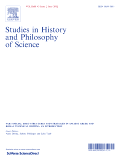
STUDIES IN HISTORY AND PHILOSOPHY OF SCIENCE
Unraveling the Philosophical Threads of Scientific EvolutionSTUDIES IN HISTORY AND PHILOSOPHY OF SCIENCE, published by Elsevier Science Ltd, is a leading academic journal dedicated to the exploration of historical and philosophical dimensions of science. With both an ISSN of 0039-3681 and E-ISSN of 1879-2510, this esteemed journal has established itself as a pivotal resource since its inception in 1970 and continues to publish cutting-edge research reflecting the evolution of scientific thought. Situated in the United Kingdom, it is recognized for its high-impact contributions, boasting a Q1 ranking in both History and History and Philosophy of Science categories as of 2023. Researchers in the humanities will benefit from the journal’s rigorous analysis and insightful discussions, as evidenced by its competitive Scopus rankings—placing it in the 96th and 83rd percentiles in their respective fields. Although not an open-access journal, it maintains a commitment to scholarly excellence, aiming to foster a deeper understanding of the interconnections between historical context and philosophical inquiry in the scientific domain, making it an invaluable resource for students, professionals, and researchers alike.

Internationale Katholische Zeitschrift Communio
Exploring the Depths of Catholic ThoughtInternationale Katholische Zeitschrift Communio, published by SCHWABENVERLAG AG, is a prominent journal in the field of Catholic theology and philosophy, dedicated to fostering deep scholarly engagement with contemporary religious questions. Renowned for its rigorous academic standards, the journal serves as a vital platform for theologians, philosophers, and scholars interested in exploring Catholic thought and its relevance in today's world. Although it is not an open-access journal, Communio offers high-quality peer-reviewed articles that enrich the discourse within the theological community. With its roots firmly in the heart of Germany, the journal not only provides insightful analyses and interpretations but also promotes dialogue among diverse perspectives, making it an essential resource for researchers, students, and professionals dedicated to understanding and advancing the Catholic intellectual tradition.
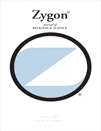
ZYGON
Fostering Interdisciplinary Dialogue Across Cultures and BeliefsZYGON, an esteemed journal published by Wiley, has been at the forefront of interdisciplinary research since its inception in 1966. With a strong focus on Cultural Studies, Religious Studies, and Education, ZYGON plays a vital role in fostering dialogue and scholarly discourse across these fields. It is categorized in the Q1 quartile for both Cultural and Religious Studies, underscoring its high impact and relevance in contemporary academic discussions. The journal is indexed with impressive rankings in Scopus, including a rank of #112 out of 644 in Religious Studies, placing it in the 82nd percentile, which reflects its contributions to advancing knowledge and understanding in the humanities and social sciences. ZYGON is committed to cultivating rigorous scholarship without an open access model, ensuring that its rich content remains well-curated for researchers, professionals, and students alike. With plans to continue its publication through 2024, ZYGON remains a critical platform for innovative research and is essential for anyone engaged in the exploration of cultural and religious intersections.
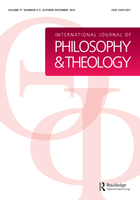
International Journal of Philosophy and Theology
Illuminating the Intersection of Philosophy and SpiritualityThe International Journal of Philosophy and Theology, published by ROUTLEDGE JOURNALS, TAYLOR & FRANCIS LTD, serves as a vital platform for scholarly dialogue at the intersection of philosophical inquiry and theological exploration. With the ISSN 2169-2327 and E-ISSN 2169-2335, this journal aims to advance critical discussions and promote interdisciplinary research, fostering engagement among researchers, professionals, and students alike. Over its publishing span from 2013 to 2024, the journal has made significant strides, achieving a category quartile ranking of Q3 in both Philosophy and Religious Studies for 2023. With a growing impact in the fields of Arts and Humanities, reflected in its Scopus ranks—Rank #357/644 for Religious Studies and Rank #498/806 for Philosophy—the journal is uniquely positioned to influence contemporary debates and foster greater understanding of complex theological and philosophical concepts. Although the journal does not currently operate under an open access model, it remains an essential resource for those interested in deepening their understanding of these critical disciplines, and it continues to uphold its commitment to rigorous scholarship.

Stellenbosch Theological Journal
Unlocking the doors to groundbreaking religious research.Stellenbosch Theological Journal is a premier scholarly publication dedicated to advancing the field of theology and religious studies. Published by the PIETER WAAL NEETHLING TRUST, this journal has embraced Open Access since 2015, ensuring that groundbreaking research is readily available to scholars, professionals, and students globally. With its roots in the vibrant academic community of Stellenbosch University, South Africa, the journal serves as a significant platform for high-quality research that engages with contemporary theological debates and issues. Although specific metrics such as H-index and Scopus rankings are currently unavailable, the journal is committed to enhancing academic discourse in theology and invites contributions that explore diverse theological perspectives, historical context, and ethical implications. Accessing the journal aligns with the pursuit of knowledge and expertise in a rapidly evolving field, making it an invaluable resource for today's theologians and religious scholars.

Journal for General Philosophy of Science
Exploring the Intersection of Science and PhilosophyJournal for General Philosophy of Science, published by Springer, stands as a pivotal resource in the fields of History and Philosophy of Science, as well as general Philosophy. With an impressive Q1 ranking in its categories and a solid reputation reflected in its Scopus rankings, this journal provides a robust platform for scholarly discourse and advancement in philosophical inquiry regarding science. The journal's commitment to quality is evident, catering to researchers, professionals, and students interested in the critical examination of scientific methods, theories, and their implications. While it operates on a subscription basis, the journal is dedicated to fostering a deeper understanding of philosophical issues surrounding scientific practices from 1980 through 2024. Operating out of the picturesque Netherlands, specifically from VAN GODEWIJCKSTRAAT 30, 3311 GZ DORDRECHT, the journal continues to encourage innovative thinking and interdisciplinary dialogue, underscoring its significance in academia today.